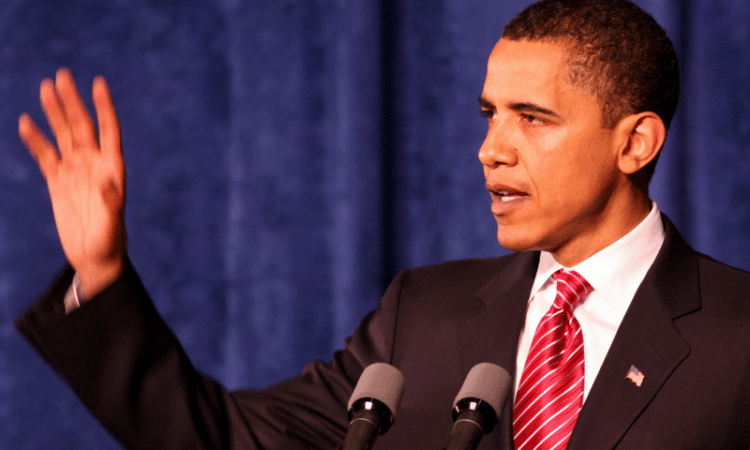How would it be if John F. Kennedy, or his advisors, had decided that the interests of global order were better served by dismissing photographic evidence of Soviet missile emplacements on the island of Cuba — and had made that dismissal the starting-point of a US policy?
It would be something like the way defense policy is handled in Barack Obama’s administration.
Decisions on defense and military security begin with the White House staff receiving a flow of data from the crisis areas. By tradition, the staff’s job is to analyze the data and fashion coherent policy options from the facts.
Nowadays, however, the president and his predilections come first, while the facts are made to follow. As former Defense Secretary Chuck Hagel told Fox News, Obama’s national security advisor Susan Rice opens her staff meetings by saying, “This is what the president wants.”
Former Defense Secretary Leon Panetta said on Fox News about Obama’s assistants: “Staff people try to read what it is that the president wants and then try through the back door to influence the direction of policy.”
That reorientation been destructive not just to defense policy but to the entire defense community. With White House staffers now speaking directly to officers in the field — disregarding the military chain of command — a new regime is on the rise; one in which the strength of military traditions is necessarily eroded.
What happens when you take a bottom-up organization like the US military and try turning it into a top-down one?
“You get a great deal of frustration, a great deal of anger.” So says a retired military officer who has worked as a contractor for the State and Defense Departments.
The US military, according to this former officer, “has a tradition of being a thinking organization, a self-correcting organization. When good young officers are unable to get the support they need, many leave the service.”
“Right now,” he says, “we have the most combat-proven and effective military force in the world. And to fritter it away…
“The generals are one thing. But the assets you can’t afford to lose are the sergeants and the lieutenants. They’re the ones who will be your majors, your colonels, your generals in the future. And when you don’t have the combat experience, there’s another kind of thing that can and will happen: you go from professionalism to careerism.”
Such a degradation, this observer says, has also occurred in the Colombian military as a result of its campaigns against the FARC. That vicious guerrilla gang has been a major player in the drug business and has counted on support from the Castro and other Marxist regimes.
During decades of war against the FARC, good Colombian army soldiers were turned out of their jobs for doing their duty; or they resigned because they were not being allowed to do their duty. With honest fighters purged from the ranks, Colombia was left with an officer corps made up of opportunists, or careerists.
When Álvaro Uribe became president of Colombia in 2002, he recognized this situation and suspended military operations against the FARC until he could fix his own army — a process to which he devoted nearly two years.
It was a brilliant rescue on Uribe’s part. But now, a decade on and under a new president, Colombia has gone back to the sinkhole in which Uribe found it.
The army has been emasculated; Colombia’s government has entered a negotiation process which recognizes one of the world’s most ruthless guerrilla armies as a “partner for peace” in a new order.
What caused Colombia to regress? A part of the answer has to do with the ineluctable influence of the global superpower, now under the governance of Obama’s “progressive” policies.
In this case, “progressive” stands for the idea of turning the clock back — back to a time in which Marxism could still trade as a viable philosophy; back to an epoch in which the only good armies were rebel armies; back to a day that Obama admires and strives to emulate.
Today the FARC is a dinosaur, a twisted monster of history, deserving to be given the pure taste of military destruction that it probably will not receive.
The US military is another matter. Rescuing it from its present downward trajectory — quite apart from restoring one of America’s great institutions — can also help prevent a scenario of “two, three, many Colombians.”
This article first appeared in the Daily Caller.
 Join us in our mission to foster positive relations between the United States and Latin America through independent journalism.
Join us in our mission to foster positive relations between the United States and Latin America through independent journalism.
As we improve our quality and deepen our coverage, we wish to make the Impunity Observer financially sustainable and reader-oriented. In return, we ask that you show your support in the form of subscriptions.
Non-subscribers can read up to six articles per month. Subscribe here.

